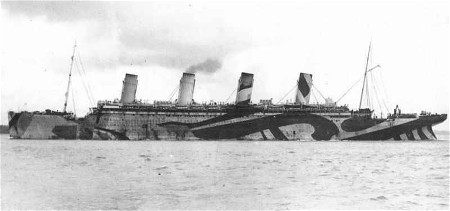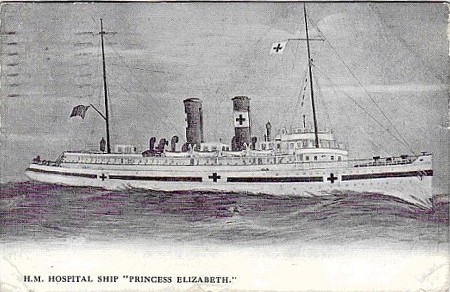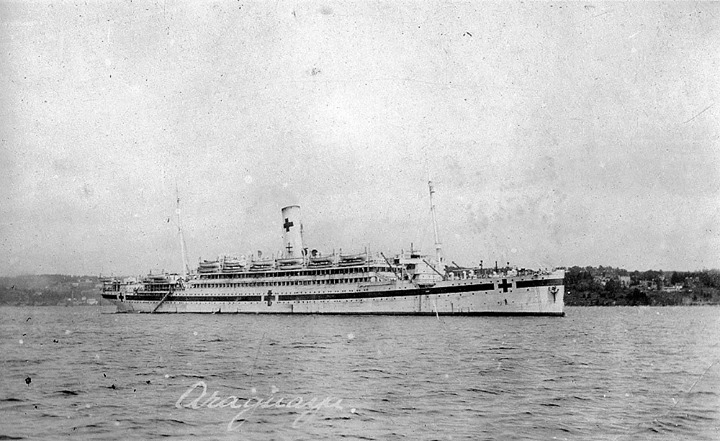|
Dec 27, 1890
|
Born in Bobcaygeon, Ontario to
Peter and Caroline (nee Robinson) Grant
|
|
Apr 25, 1916
|
Attested into the 109th Battalion CEF
in Bobcaygeon, Ontario
Ø Number 724269
Ø Next of kin given as Peter Grant, father,
Bobcaygeon, Ontario
Ø Previous occupation given as Carpenter
Ø Previous military experience given as 2 years in
the 45th Victoria and Haliburton Regiment
Ø Religion given as Presbyterian
Ø Posted to “C” Company
In the spring of 1916, the 109th
Battalion moved to Camp Borden near Barrie, Ontario for advanced training
In early July 1916, the
battalion moved to the Barriefield Camp, Kingston, Ontario
|
|
Jul 23, 1916
|
Embarked the SS Olympic in
Halifax, Nova Scotia

|
|
Jul 31, 1916
|
Disembarked in Liverpool,
England and proceeded to the Bordon Camp, near Longmoor, Hampshire
|
|
Aug 16, 1916
|
The battalion moved to
Bramshott to continue training
|
|
Oct 5, 1916
|
Transferred to the 21st
Battalion
|
|
Oct 6, 1916
|
Arrived at the CBD (Canadian
Base Depot) in the Rouelles Camp, Havre, France and Taken On Strength of the
21st Battalion
|
|
Oct 11, 1916
|
While still at the base depot,
he was overcome with Influenza and admitted to the No. 7 Canadian Stationary
Hospital in Havre
|
|
Oct 17, 1916
|
Transferred to the No. 4
Convalescent Depot in Havre
|
|
Oct 24, 1916
|
Discharged from hospital and
reported to base depot in Havre
|
|
Oct 31, 1916
|
After leaving the base depot,
Private Grant joined the 21st Battalion in Reserve at Calonne,
France
|
|
Dec 18, 1916
|
Attached to the 4th
Field Company, Canadian Engineers for duty
|
|
Jan 17, 1917
|
Rejoined the 21st
Battalion in Calonne, France from the 4th Field Company
|
|
Apr 7, 1917
|
During the preparations for
the attack on Vimy Ridge, Private Grant received a shrapnel wound to his
right hip that fractured the head of his femur and was evacuated to the No. 8
CFA (Canadian Field Ambulance) for first aid before being transferred to a
casualty clearing station where surgery was performed to repair some of the
damage and remove bone fragments
|
|
Apr 10, 1917
|
Transferred to the No. 13
Canadian Stationary Hospital in Boulogne, France
|
|
Apr 22, 1917
|
Invalided to England aboard
the Hospital Ship Princess Elizabeth

On arrival in England, he was
admitted to the Military Hospital in Bethnal Green, London
Transferred to the EORD
(Eastern Ontario Regimental Depot) for pay purposes while in hospital
|
|
May 3, 1917
|
Surgery performed to remove
dead bone
|
|
Jul 4, 1917
|
Transferred to the Ontario
Military Hospital in Orpington
|
|
Aug 30, 1917
|
Transferred to the Canadian
Convalescent Hospital in Bromley
|
|
Oct 18, 1917
|
Transferred to the No. 5
Canadian General Hospital in Kirkdale, Liverpool
|
|
Nov 19, 1917
|
Embarked the Hospital Ship Araguaya
in Liverpool

|
|
Nov 29, 1917
|
Disembarked in Halifax, Nova
Scotia
|
|
Dec 6, 1917
|
Admitted to the Queen’s
Military Hospital in Kingston, Ontario.
On admission he is noted as walking with a limp and has the aid of a
walking stick. To be treated as an
Out-Patient
|
|
Jan 11, 1918
|
Admitted to the Queen’s
Military Hospital as an In-Patient
|
|
Feb 15, 1918
|
Medical exam in Kingston notes
Ø Complains of pain
and weakness in right hip due to his shrapnel wound
Ø The shrapnel caused
considerable muscle damage
Ø X-Ray shows
shrapnel ball present near the top of the femur
Ø Recommendation made
for the patient to be discharged from service
|
|
Feb 28, 1918
|
Discharged from the CEF in
Kingston, Ontario
Ø Rank on discharge
Private
Ø Entitled to War
Service Badge Class “A”
Ø Proposed residence
on discharge Bobcaygeon, Ontario
Following the end of the war,
the British War Medal and Victory Medals were sent to him at Bobcaygeon,
Ontario
|
|
May 2, 1955
|
Thomas Ewart Grant died as
reported to Veterans Affairs Canada by his nephew, John Grant, Bobcaygeon,
Ontario
|
|